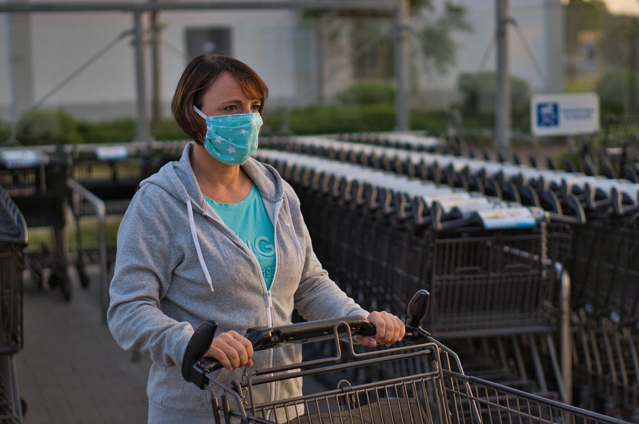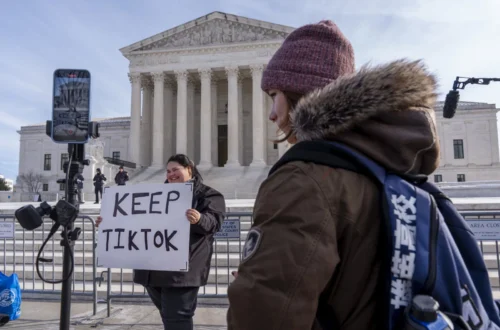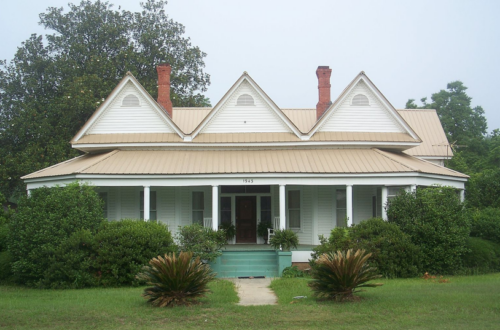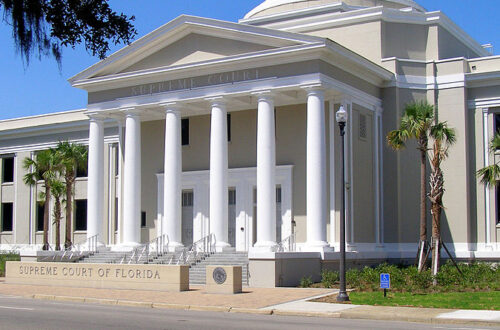On Feb. 3, HB 7 was approved by the Florida House Pandemics & Public Emergencies Committee along party lines.
HB 7 and its Senate version SB 72 aim at offering what proponents call ‘protection’ and opponents call ‘immunity’ for Florida businesses, educational institutions, governmental entities, and religious institutions facing COVID-19-related liability claims for damages, injury or death.
Sponsored by Rep. Lawrence McClure, R-Hillsborough, HB 7 would require plaintiffs to begin a lawsuit within one year of being infected by the virus, and to have an affidavit from a physician that guarantees “within a reasonable degree of medical certainty” that the plaintiff’s COVID-19 related damages, injury or death were due to the business’s actions or omissions.
The plaintiff must then prove that the business 1) did not make a good faith effort to comply with authoritative or government health guidelines, and 2) also acted with gross negligence. Which health guidelines are considered “authoritative” is not specified in the bill’s text.
If passed, the bill would be effective immediately and apply retroactively to previous COVID-19 liability cases in Florida.
Proposed amendments challenged the bill’s provision requiring a physician’s affidavit and suggested additions such as a statewide mask mandate and employee protections.
Four of the proposed amendments failed to be adopted and two were withdrawn.
HB 7 does not include protections for health care providers such as hospitals and nursing homes.
Senate Judiciary Chairman Jeff Brandes, a sponsor of the Senate version of the bill, has said that health care providers will be addressed in separate legislation soon to be released.
“I can’t see Gov. DeSantis allowing the Legislature to adjourn without a sufficiently strong health care liability legislation,” Brandes told the Tampa Bay Times.
Health care providers have been calling for liability protections since spring 2020.
Peter Schorsch, the controversial blogger and “micro-media mogul” known for his insider political coverage, suggested in an article for Florida Politics that the omission of health care provider liability might have been a factor in HB 7’s success thus far. Schorsch posits that health care provider liability will be more contentious and face stronger resistance from trial lawyers.
Not everyone agrees with the exclusion of health care providers in HB 7.
Chris Nuland, a lobbyist who represents physician specialty groups in Florida, said in a statement to The News Service of Florida, “Liability protection for health care workers should be a priority that should be the centerpiece of any larger liability protection package.”
HB 7 is supported by the Florida Hospital Association, the National Federation of Independent Businesses, the Associated Industries of Florida, the Florida Healthcare Association and the Florida Chamber of Commerce among other groups.
“Florida has the fifth-worst legal climate in America and the last thing we need are a tsunami of frivolous COVID-19 lawsuits as we seek to relaunch Florida’s economy,” said Florida Chamber of Commerce President Mark Wilson. “It’s important to provide Florida businesses, who are doing the right thing by their customers and employees, the assurance that they can continue doing their part to relaunch Florida’s economy without fear of facing frivolous lawsuits.”
Other proponents of the bill echo Wilson’s economic concerns.
A recent report from the nonpartisan research institute TaxWatch reported that a loss of employer confidence due to concern over possible COVID-19 litigation could cost the Florida economy thousands of jobs and billions of dollars in “business activity.”
Despite the concern expressed by many proponents of HB 7 over a possible “tsunami” of lawsuits, it is unclear how many COVID-19 related claims have actually been filed in Florida thus far.
Rep. McClure himself has said that there are as of yet “fewer than 10” lawsuits with COVID-19 related claims.
The COVID-19 complaint tracker of the law firm of Hunton Andrews Kurth posits that hundreds of cases related to COVID-19 have been filed in Florida, but that few are actually COVID-19 exposure liability cases. Rather, most involve businesses suing their insurers over business interruption insurance policies.
Thomas S. Edwards, Jr., a Jacksonville trial lawyer, told the Florida House Health and Human Services Committee that the bill is a “solution in search of a problem.”
Others opposed to the bill include the Florida AFL-CIO, Florida Justice Association and the Florida National Organization for Women, Inc.
Curry G. Pajcic of the Florida Justice Association, Florida’s main trial lawyer lobby, told the House Civil Justice and Property Rights Subcommittee that the bill was unconstitutional because it sets “impossibly high standards that no one can meet.”
Tort and legal reforms were being considered before the COVID-19 pandemic shut down the state.
As the Orlando Sentinel has reported, in recent years the Florida legislature has considered multiple bills to reduce liability, or to cap damages amounts for lawsuits and DeSantis’s conservative Florida Supreme Court picks are expected to uphold future legal reforms.
Over a dozen other states have already passed measures that limit businesses’ COVID-19 liability in some way.
COVID-19 liability protections have also been considered at the federal level and were a major point of contention in negotiations over the second stimulus package.
In Florida, HB 7 is now on the Florida House Judiciary Committee’sagenda and is expected to pass in the first few weeks of the 2021 Florida legislative session beginning March 2.
SB 72 is set to face the Florida Senate Commerce and Tourism Committee.
Featured image: HB 7 proposes COVID-19 liability protections for businesses. Unedited image by Anrita1705 used under a Pixabay license. (https://bit.ly/3iFXZHl)
Check out other recent articles from the Florida Political Review here.





